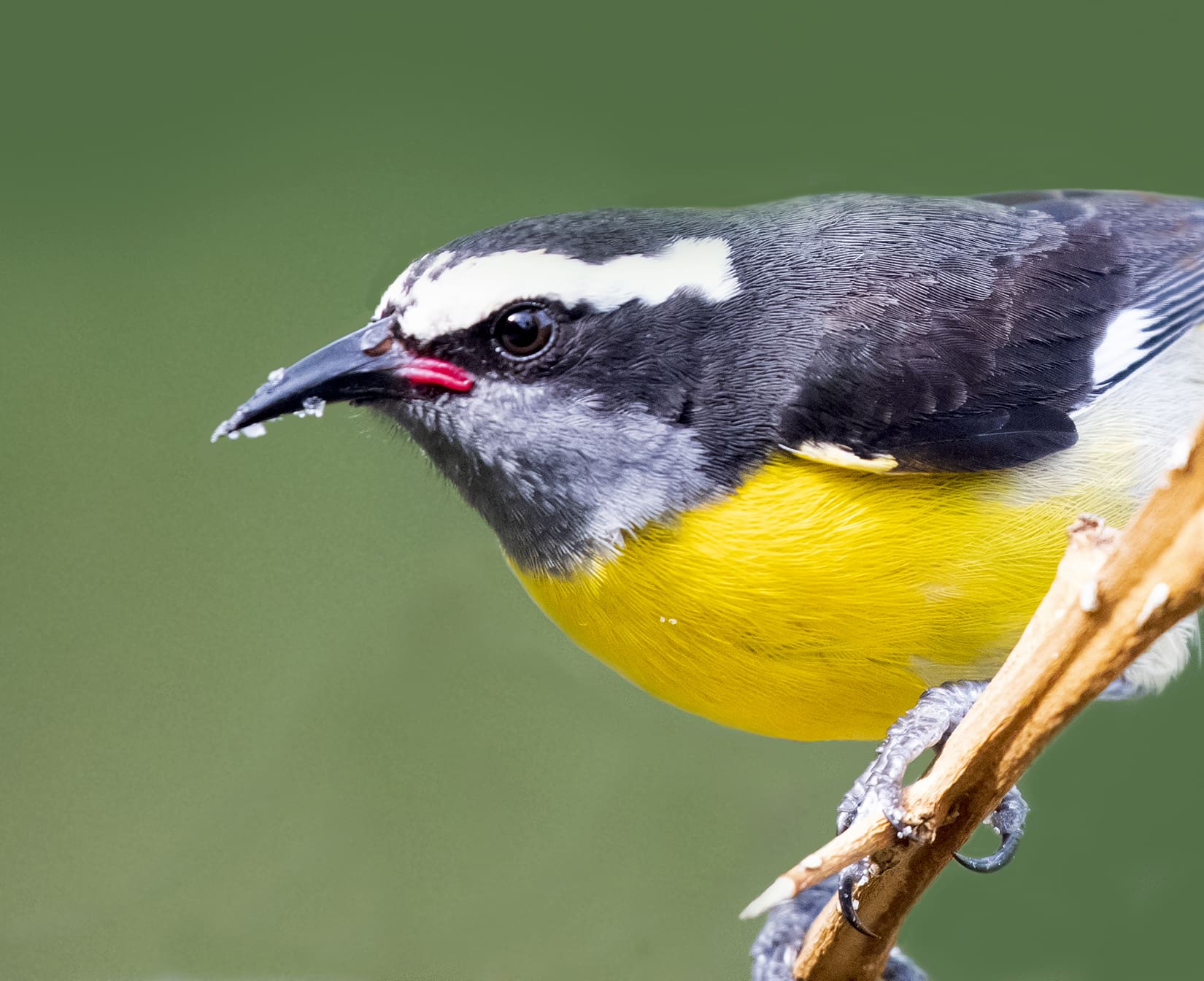
Many people like to attract the local bananaquits by putting out sugar or sugar water. But some people ask if that is actually good for the birds.
I have been one of those questioners. It is certainly fun to have an eager bunch of birds waiting for you to get up in the morning and fill the feeder. Still, for a long time, I resisted getting a feeder because I thought the bananaquits were better off finding their own food in a normal bird way – like catching insects in the trees or poking their curved bills into ripe fruits and berries, or getting nectar from flowers (and in the meantime helping with pollination).
Besides not wanting to interfere with the broader ecology, I also didn’t want the birds to become fat and lazy or dependent on humans. Or sick.
I did sometimes put out a bowl of water for them during dry times but wasn’t sure that was really good for them either. Some birds drank the water while others got into the bowl to take a bath. I was afraid those dirty feet in the drinking water might spread diseases.
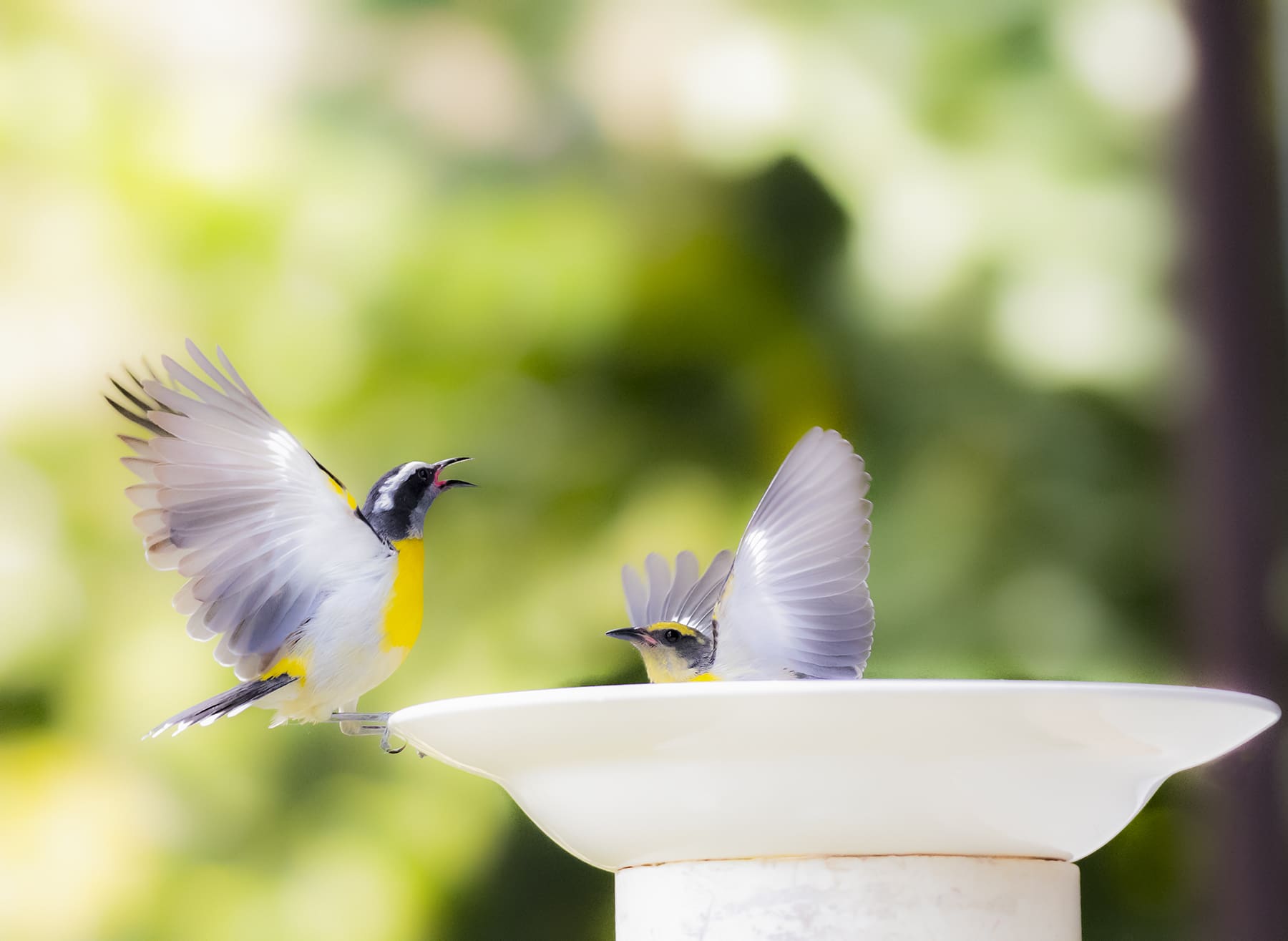
Then the 2017 storms stripped the islands of vegetation, and the bananaquits and many other plant-dependent birds were desperate for food. A number of people made great efforts to put out sugar for the bananaquits, and that probably helped many of them survive that terrible time.
After the storms, I started to feed the bananaquits too. But I still worried about it.
At first, I put out sugar water in a bowl and had the same issue with certain birds using it for baths, even though their feathers must have gotten a little sticky. Sometimes they even knocked over the bowl in their exuberance.
Then I got one of the popular painted coconut husk feeders made by Ital Delroy Anthony on St. John. I decided putting sugar water directly inside the coconut would make things moldy, so for maximum cleanliness, I used a plastic cup sitting inside the coconut. That way, I could wash it every morning before refilling it.
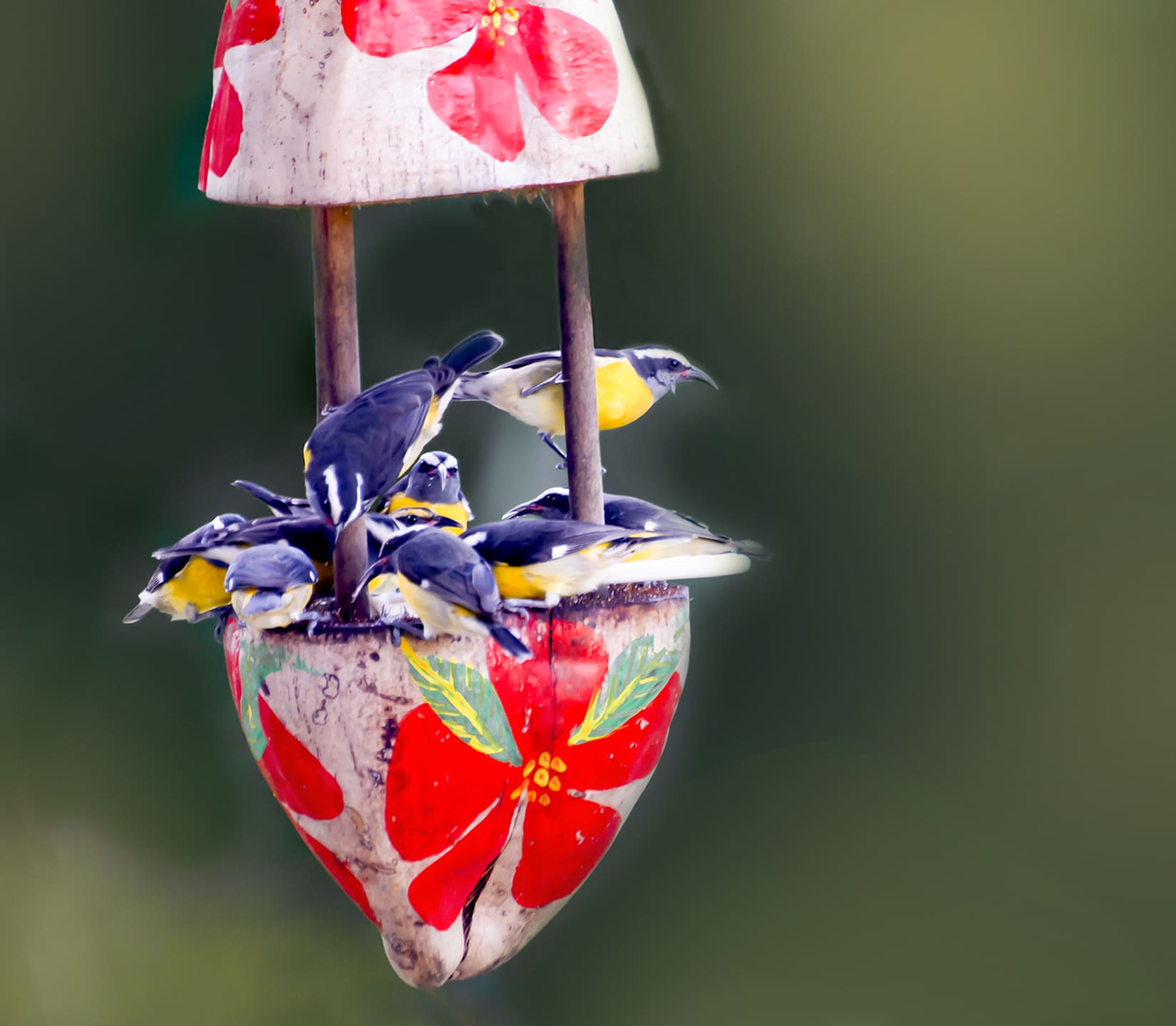
Then one of my birder friends suggested that I should just give them white sugar directly from the bag. That seemed less messy. Also, a more satisfying user experience for the birds – the crystals are easy to grab and take away, and more birds can get served quickly. Of course, there is still quarreling and jockeying for position, but overall there is less spillage, and no one takes a bath in the cup.
Before long, I started worrying about whether the bananaquits, like people, could get diabetes and other ailments from eating too much white sugar.
After some research, I learned that wild birds are generally not susceptible to diabetes in the same way that we are, in part because they have much higher normal blood glucose levels. But I didn’t see any studies that said eating white sugar was actually good for them.
Their natural diets include insects for protein, as well as fruits, berries, and nectar – which contain vitamins and other nutrients. Of course, if there aren’t enough fruits and flowers around, white sugar seems better than not eating.
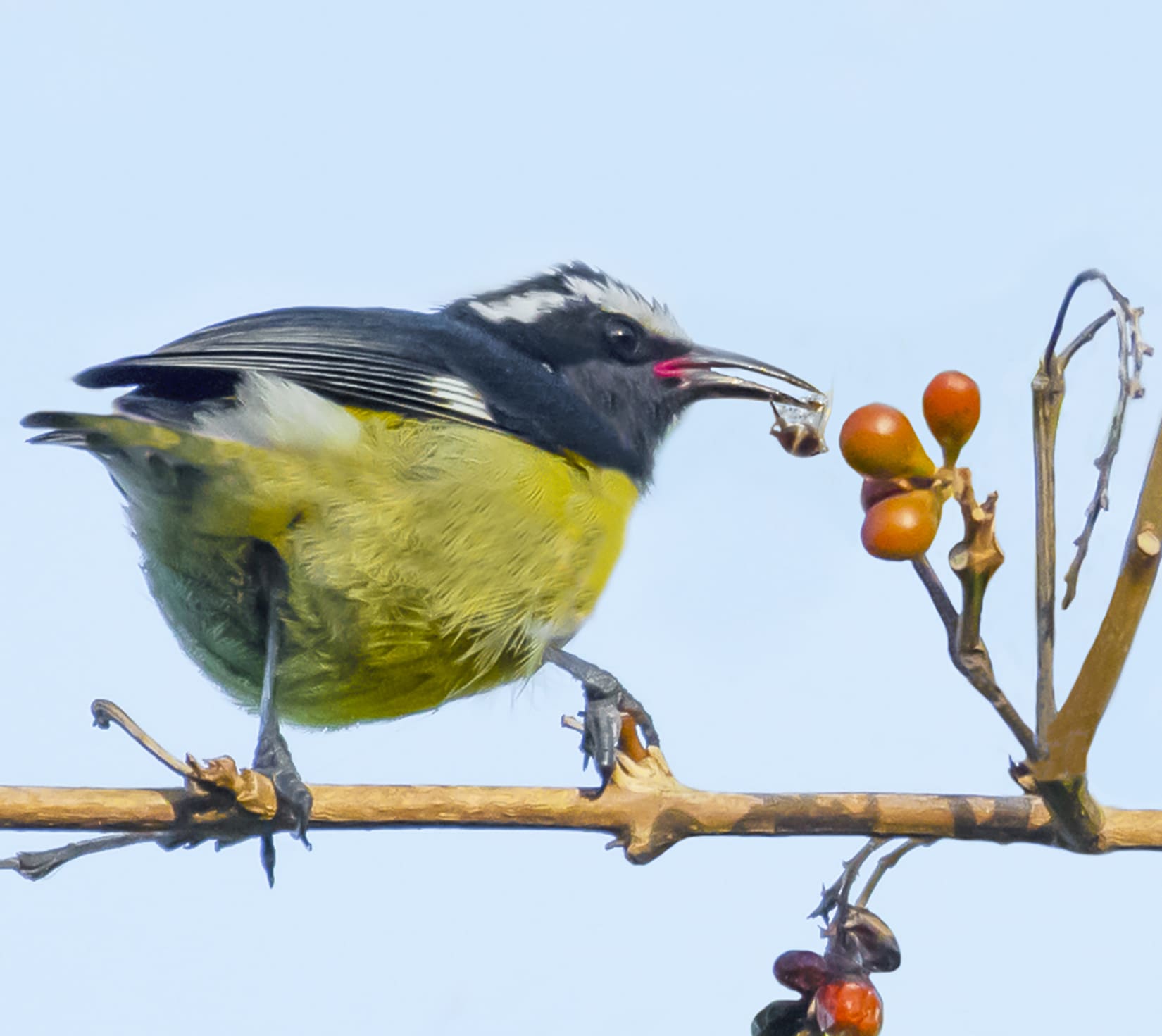
I also began thinking about why bananaquits would even eat the sugar crystals since many birds won’t.
One thing I learned is that, unlike many birds, bananaquits are able to digest sucrose, which is naturally found in sugar cane, sugar beets, and many plant nectars. White sugar is pure refined sucrose. It can be difficult to digest because sucrose is composed of two simple sugars, glucose and fructose, chemically bonded together. Nectar-eating birds without the enzyme needed to break that chemical bond have to depend on plants and flowers that produce glucose or fructose.
Locally, Antillean bullfinches are able to digest straight sucrose too. In fact, a male Antillean bullfinch is often the first one at the sugar feeder in the morning.
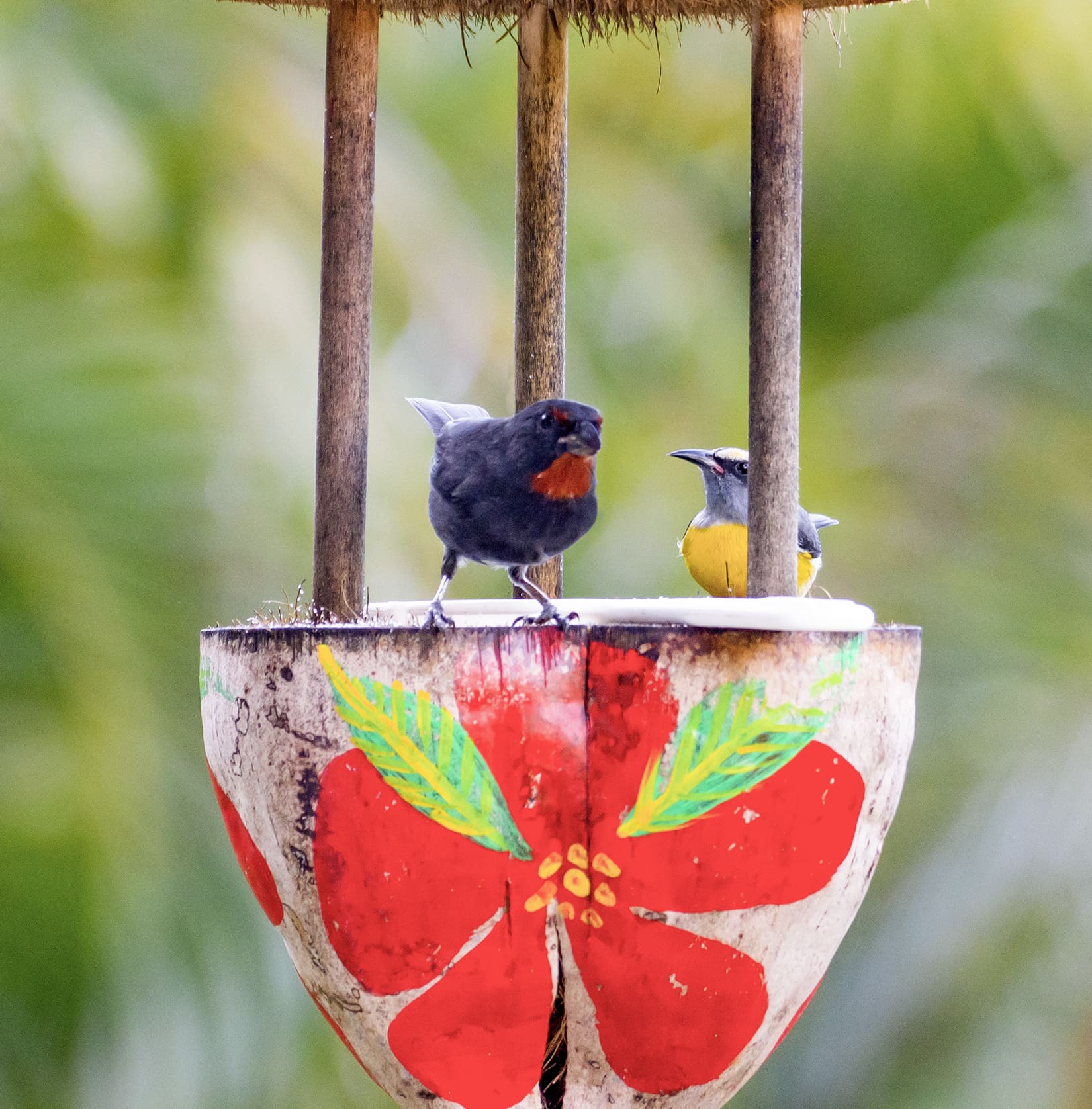
Hummingbirds can also digest sucrose/white sugar, but for them, it needs to be diluted in water – about 4 parts water to one part sugar – to resemble the nectar they drink. (Many sources warn not to use honey, raw sugar, brown sugar, or artificial sweeteners in hummingbird feeders, as these may cause digestive problems, contain residues and impurities, or lack nutrients.)
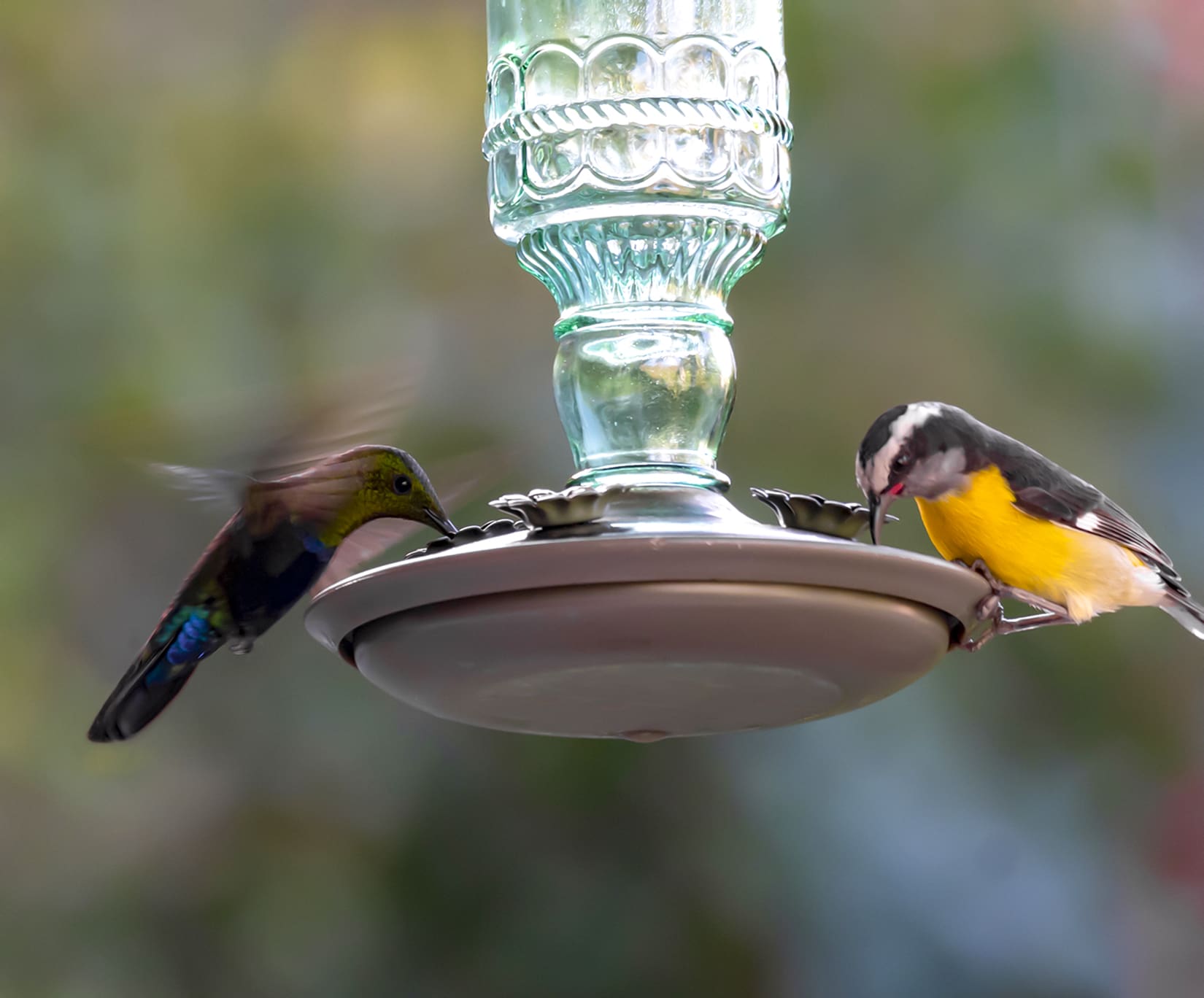
Interestingly, the bananaquits will also drink from the hummingbird feeder when their feeder is empty, sticking their tongues into the little holes to get the sugar water. Their tongues are not as long as hummingbird tongues but apparently long enough to reach the sugar water. Much to the annoyance of the hummingbirds.
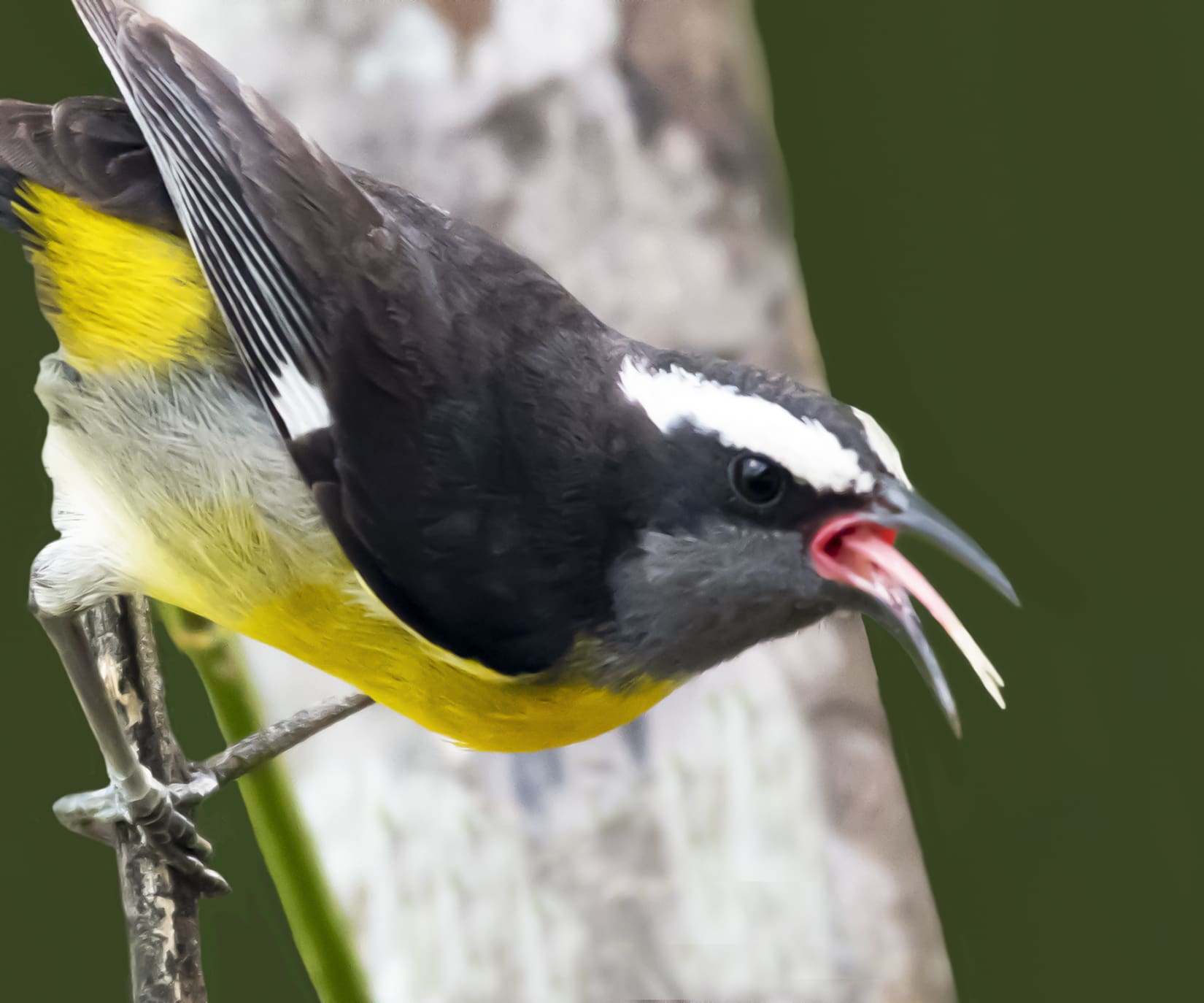
I love to watch the birds enjoying their feeders at breakfast time. I am careful to keep the feeders clean and limit the amount of sugar I put out so they can still spend most of the day foraging for themselves.
I do hope that the feeders benefit the birds as well, especially during the times when flowers and fruits are scarce. Still, I would like to know more about how these interactions I enjoy so much actually affect the lives and long-term health of the birds.
Gail Karlsson is an environmental lawyer, writer, and photographer. She is the author of The Wild Life in an Island House, plus the guide book Learning About Trees and Plants – A Project of the Unitarian Universalist Fellowship of St. John, and has just published A Birds’ Guide to The Battery and New York Harbor. Follow her on Instagram @gailkarlsson and gvkarlsson.blogspot.com.





